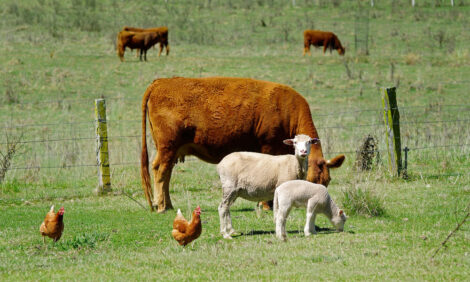



Buyers Knock Jamaica Broilers' Pullet Policy
JAMAICA - Jamaica Broilers Group has long required a deposit for supplying layers, but egg producers and farm stores now say strict enforcement of the credit terms is stressing their cash flows and is a major cause of egg shortages on the market.Broilers, through subsidiary Jamaica Egg Services, requires a 30 per cent deposit on layers or pullets six months in advance of delivery.
But Doreen Lawson, the managing director of KDL Agriculture, says stores like hers find it difficult to tie up their cash for such a long period, leading to fewer orders.
With fewer layers entering the system, egg production would have fallen, she said.
Another poultry company, Caribbean Broilers Group, and others in the market have linked the egg shortage to fewer layers but also panic buying.
"How I see it from the standpoint of a farm store operator, what I think is creating the problem is that small operators just can't afford to find that money to tie up for so long in advance," Ms Lawson told the Financial Gleaner.
"Formerly, you would do the order month by month from your annual projection, then submit deposits to Jamaica Eggs Services as necessary," she explained. However, the current "enforcement" of the six months' advance deposit has placed pressure on both farm store operators and small egg farmers, she said.
"For instance, to get birds in August of this year you have to set aside your deposit way in advance," she said.
An order of 1,000 birds comes with a deposit of at least $130,000 to $140,000, said the store operator.
"I have customers taking birds from me for the entire year. It means that I will have to find at least a $500,000 to deposit to get birds in August, September and October because, if I don't, it means I won't be getting any at all," Ms Lawson said.
However, president and CEO of Jamaica Broilers, Christopher Levy, says the pre-order system is not new nor is it just being enforced.
"I don't think we have instituted any policies that have not been in place for many years. The policy is very clear - they pay 30 per cent down on commitment with the rest paid by the sixth month, in time for delivery," Mr Levy said.
The only time the policy was not enforced was during the glut, he said.
"What is happening is that the farmers want more birds than they have money for," he chided. "This is straight business, I would place the birds, you put down a commitment or I will just end up with all the birds," he said.
He said the company has, in the past, extended credit to farmers and was left holding the bag when they cancelled their orders.
"When the farmers come in to order the birds, that delivery is six months away so we are investing for six months. If, at the end of that time, the farmer comes and says I don't want the birds again, my investment is gone and I still have these birds."
"This is business," he declared. "The commitment from the farmer is matched by our commitment and safeguards both parties. Everybody is having cash flow constraints, it's a very difficult time for all," he said.
Data from the Ministry of Agriculture placed consumption demand for eggs at 33 million dozens in the final quarter of 2013, but said local egg production was only 27 million in the period.
Mr Levy said Jamaica Broilers' payment policy could not have contributed to the current shortage because its "orders are up strongly".
However, director of the Jamaica Eggs Farmers Association, Paulette Howell, said the two were connected, saying some farmers had not complied with the credit terms and were unable to get the birds they had ordered.
She conceded, however, that regular advisories were sent out to farmers by the poultry company regarding the requirements.
Jamaica Broilers' pre-order policy "was always there; they had relaxed it, but have started to enforce it since last year," said Ms Howell.
"Many persons cancelled their orders in the glut of 2012 and they (Jamaica Broilers) were left with the birds and this created a problem with their own cash flow; so this is intended as a safeguard," she said.
She suggested the farm stores assess their own resources and create systems to ensure orderly supplies of birds to farmers.











